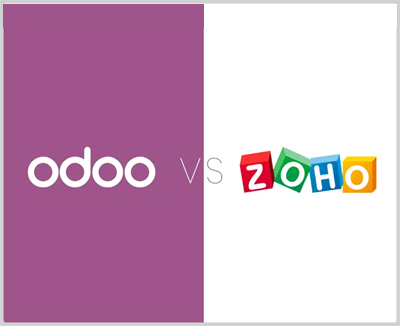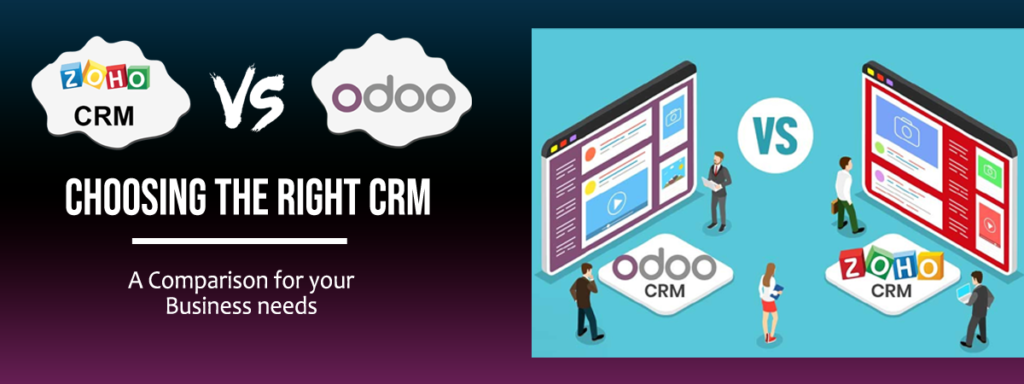In the realm of Customer Relationship Management (CRM) systems, two names often come up in discussions: Odoo and Zoho CRM. Both platforms are renowned for their features and functionalities, but choosing between them can be challenging. In this comprehensive comparison, we’ll delve into the key aspects of Odoo and Zoho CRM to help you make an informed decision.
Focus and Core Functionality:
- Odoo: While Odoo is not solely a CRM platform, it offers a robust CRM module as part of its broader Enterprise Resource Planning (ERP) software. Odoo’s core functionality extends beyond CRM to include modules for sales, purchase, project management, e-commerce, inventory management, and more.
- Zoho CRM: In contrast, Zoho CRM is primarily focused on CRM functionalities. Although Zoho offers other products, its main concentration lies in providing CRM solutions.

Target Audience:
- Odoo: Odoo caters to businesses of all sizes, including small, medium, and large enterprises. Its flexibility allows for adaptation to various business requirements.
- Zoho CRM: Zoho CRM is tailored towards small and medium-sized businesses (SMBs). While it may not be as versatile for larger enterprises, it offers targeted solutions for SMBs.
Cost and Licensing:
- Odoo: Odoo offers a Community Edition, which is free to use. For more advanced features, users can opt for the Enterprise Edition, which involves payment based on subscription plans.
- Zoho CRM: Zoho CRM also provides a free version, with payment based on subscription plans for additional features. It’s considered cost-effective, particularly for SMBs.
Customization and Scalability:
- Odoo: Odoo is highly customizable, allowing businesses to tailor the software to their specific needs and workflows. It’s scalable and can adapt as businesses grow and evolve.
- Zoho CRM: While Zoho CRM offers some degree of customization, it may not be as flexible as Odoo. Additionally, scalability might be limited, with the need to rely on other Zoho products for advanced features.
User Friendliness:
Both Odoo and Zoho CRM boast user-friendly interfaces, making them accessible and manageable for employees, customers, and users alike.
Community and Support:
- Odoo: Odoo provides both community and commercial support, benefitting from a robust community of users and developers.
- Zoho CRM: Similarly, Zoho CRM offers commercial support, along with assistance for other Zoho products, ensuring users have access to help when needed.
Conclusion:
When choosing between Odoo and Zoho CRM, consider factors such as the size of your company, budget, customization needs, and scalability requirements. Odoo is suitable for businesses of all sizes, offering extensive customization and scalability, while Zoho CRM may be more suitable for small and medium-sized businesses seeking cost-effective CRM solutions. Evaluate your needs thoroughly to make the best decision for your organization.
Thank you for reading! We hope this comparison has provided valuable insights into choosing the right ERP solution for your business needs.



